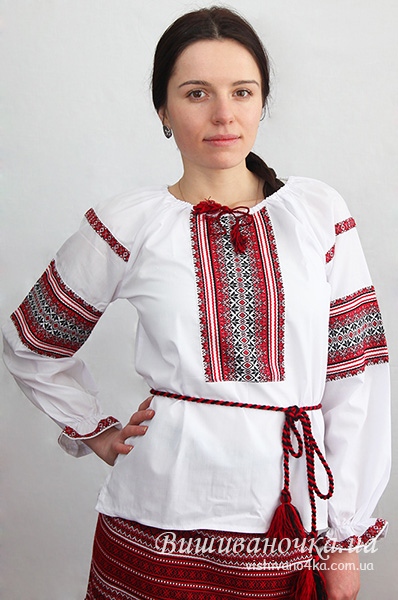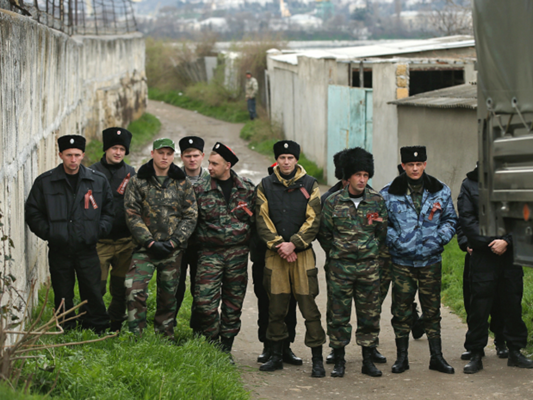Right after the Russian take over of the Crimean peninsula, writing about situation in Crimea seemed easy. First thing that was attracting attention was the obvious excesses of Russian nationalism. In one high school the Ukrainian language books were burned in the schoolyard; in another, teenage Ukrainian girls were thrown out of the class as traitors by their teacher because they dared to come to school wearing “vyshivanki” – Ukrainian traditional embroidered blouses.

Over time as more order was being established in Crimea, less and less obviously outrageous materials were appearing in the Internet. And it was more difficult to understand the real situation, because Russian and Ukrainian propagandas were giving very contradictory information.
Of course it is clear that the situation with civil rights in Crimea is still far from normal. According to Human Rights Watch, since March 2014 there have been documented at least 15 cases of disappearance of pro–Ukrainian or pro–Tatar activists. Some of these people were found killed. In most cases, these killings in were committed by so-called self-defense regiments – armed groups of Russian nationalistic volunteers, legalized in Crimea.

A self-defense regiment.
According to the census of 2001 (the last census before Crimea was seized by Russia) the population of the peninsula was about two and a half million. Among them 1,550,000 are Russians; 577,000, Ukrainians; and 245,000 Crimean Tatars. No one knows the real number of Ukrainians and Tatars who fled from Crimea this year. According to Ukrainian organization “Ukrainian Home” about 18,000 Ukrainians officially moved from Crimea to Ukraine.
Last year Russian authorities made a new census in Ukraine. In November preliminary results of the census were published. In this report the information about ethnic division of the population, which seems the most important in this case, is missing. Official explanation: authorities will be able to complete estimation only by May 2015. Why?
The most unclear question about Crimea today is the mood of the majority of the Crimean population, those who voted for joining Russia. Are they happy?
There is a lot of official Russian propaganda material about the happiness of the people in Crimea. Yet many Internet publications claim that the majority of Crimeans now want Crimea returned back to Ukraine.
There is a lot of Internet information about difficulties of life in Crimea. Ukraine has blocked railroad and bus communication with Crimea. There are difficulties with delivery of water and electricity, which come to Crimea from Ukraine. January 1 was officially appointed as the date of completion of a so-called period of transition from Ukrainian to Russian ways of life. The first shocking surprise of this date was: all the currency exchange offices closed. Now one can exchange foreign currency only in a bank after presenting a proof of how the currency was obtained or explanation why it is needed. Currency is sparse in the crisis stricken Russia and the first victims of this turned out to be Crimeans.
I found especially interesting an article by Sviatoslav Kniazev published by Russian web site Politrussia. The author of this long article is trying to prove that life for Crimeans is in general is much better than life in Ukraine. He compares salaries and prices in Ukraine with Crimea and comes to conclusion that in most of cases the life in Crimea is superior.
Kniazev also discusses some difficulties of the Crimean life, those he finds most unacceptable. Here is one example that struck me as much as it struck the author of the article. The bureaucracy in Ukraine is much less controlling than in Russia.
During the years of Ukrainian power a lot of people moved to Crimea, but hadn’t registered their presence officially. Some of them moved in with their spouses after marriage; some found job in Crimea, but hadn’t registered over there. By Russian law registration and getting a local passport is mandatory.
According to the article about 10% of the peninsula population, young educated professionals, turned out to be unregistered. They can fix their status only in the local courts. But the courts are too small to process all such claims. Thousand of young people are still spending hours and days in the lines in order to legalize their life in Crimea.
The author of the article concludes: in spite of all the shortcomings of Crimean life no one in Crimea wants to go back to Ukraine.
The article is very interesting but readers’ comments to the article were even moreso. All the Crimeans who commented gave supportive data about life in Crimea.
Some find it important to add that the economical level of life is not the most important thing. Even if Ukrainians were much wealthier then Russians, Crimeans still would be happy to be back in their beloved motherland – Russia. Practically all the comments from Russian readers living outside of Crimea happily support “real patriotic” Crimeans, and condemn “fascist” Ukrainians.
One comment, addressed to Ukrainians I found especially fascinating: “Why don’t you Ukrainians love us? We love you. Believe me, not all Russians find you an inferior minority.”

